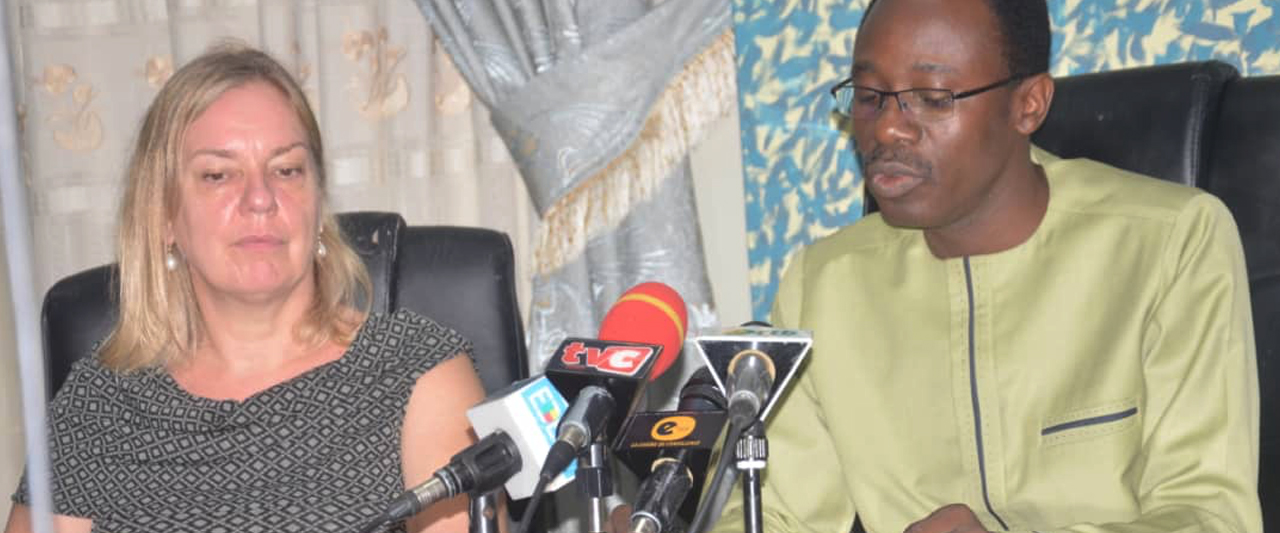The Benin Government has taken a major step towards advancing the sexual and reproductive health and rights of women and girls. On January 31, the Ministry of Health hosted a national dissemination workshop on the results from the “Strategic Evaluation on unwanted pregnancy, Abortion & Contraception in Benin.” The evaluation was conducted under the leadership of the Mother and Child Health Directorate with the technical support of Ipas.
The recommendations aim to reduce the number of maternal deaths by lifting legal restrictions and improving access to comprehensive reproductive health care—including safe abortion, postabortion care (PAC) and the provision of contraceptive counseling and methods.
Although national data on unwanted pregnancies and abortion are not available, the Ministry of Health estimates that 15 percent of maternal deaths are due to unsafe abortions. In addition, the country’s contraceptive prevalence rate is low, 7.9 percent for modern methods of contraception and 12.9 percent for all contraceptives.
“When women are denied access to contraception and lack information about family planning, they are faced with unwanted pregnancies. When legislation restricts access to abortion, even in the case of rape or incest, or when it is not accessible due to economic reasons or stigma, women may have unsafe and dangerous abortions,” says Nicolette van Duursen, director of Ipas Francophone Africa.
The government’s recognition of the problems associated with unsafe abortion and the results of the assessment
outline the need to strengthen the legal system to include the right for women to access safe and legal abortion services, prioritize reproductive health strategies and improve the quality of reproductive health services.
The recommendations focus on four key areas: prevention of unwanted pregnancies and the need for contraception, the impact of unsafe abortions and legal environment.
Unwanted pregnancies and contraception
- Develop comprehensive sexual education programs and educate parents on sexual and reproductive health issues
- Train health-care providers to educate women and girls on reproductive health issues and ensure family planning services are available in all health facilities.
- Ensure health-care providers respect the confidentiality and privacy of all clients.
- Ensure health-care providers go through training so patients are treated with sensitivity and respect.
- Provide information on the availability of emergency contraception on the list of essential medicines.
Prevention of unsafe abortion
- Disseminate information on the right to safe and legal abortion.
- Ensure PAC is an integral part of providing safe maternal care and that services are free in both public and affordable in private settings.
- Expand PAC services to rural health centers and provide up-to-date technologies for safe PAC in these facilities.
- Ensure health-care providers, including midwives and nurses, are trained, qualified and licensed to provide PAC using improved and appropriate technologies.
- Address abortion stigma through community awareness campaigns across the country.
Strengthen the legal environment
“The results of this study will be very useful in guiding the reproductive health strategies of the Ministry of Health as well as all the partners working in Benin,” says van Duursen. “We truly appreciate the political will shown by the health authorities to fight against maternal mortality, especially that related to abortions, because, as we know, abortion complications are direct causes of maternal deaths.”
- Bring abortion laws into line with international and regional agreements ratified by the Government of Benin, including the Convention on the Elimination of All Forms of Discrimination against Women (CEDAW), the Protocol to the African Charter on Human Rights and Human Rights for Women’s Rights in Africa and the Maputo Protocol on Women’s Rights.
- Initiate a national discussion on the issue of unsafe abortion, its contribution to maternal mortality and the impact of current law on unsafe abortion.
- Develop and disseminate information to educate people on their rights to contraception and safe abortion.
- Strengthen the Ministry of Health’s coalition efforts with partners, including civil society to assist legislators in reviewing and reforming abortion laws.
- Include a module on reproductive rights and safe abortion in training programs for all cadres of health care providers, as well as teachers in primary, secondary and university schools.
- Develop and disseminate community-based information, education and communication messages to sensitize the Beninese population on unwanted pregnancies, contraception and unsafe abortions.
The strategic assessment was a collaborative effort between international, national and local non-governmental organizations in conjunction with the Government of Benin.
Related links:
YouTube video: Santé : atelier de dissémination du rapport sur les grossesses non désirées
Article in the Partenariat de Ougadougou: Grossesses non désirées et avortements: Des taux alarmants chez les femmes et filles au BéninThe publication in the national journal : La Nation : Here
For more information, contact [email protected].


